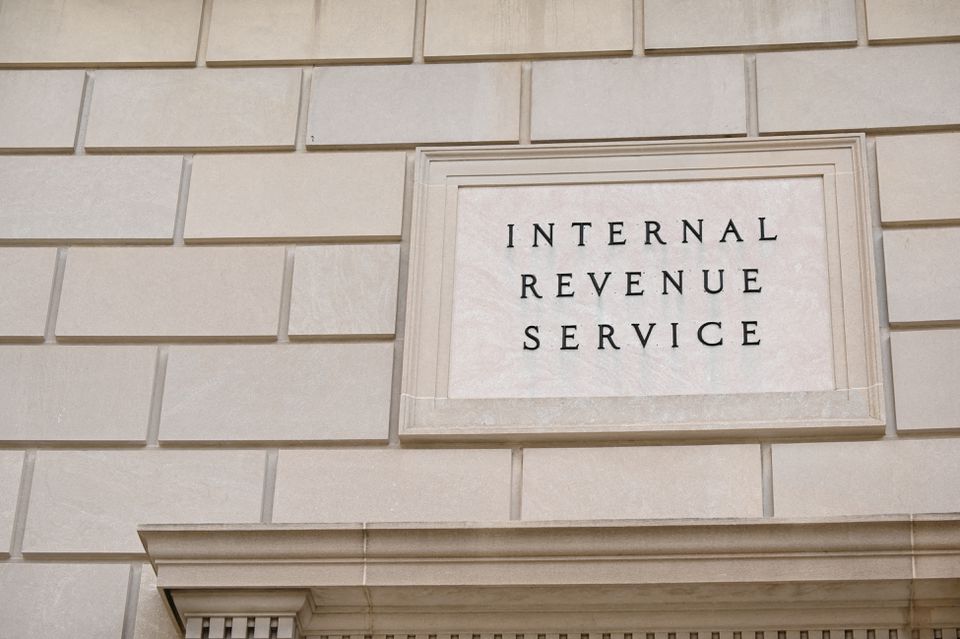OTHER
Lerner will not be held in Contempt for not Testifying
While the Justice Department has decided to not push for contempt charges against Lois Lerner regarding her actions with the IRS, republican representatives John Boehner feels that justice has not been made for crimes committed against Congress.
The Justice Department has decided to not push for the contempt of charges against Lois Lerner, which caused Boehner to bad mouth the Obama administration once again.
A representative for the republican senator states “Once again, the Obama administration has tried to sweep IRS targeting of taxpayers for their political beliefs under the rug.”
Lerner has chosen to not testify against herself by pleading the Fifth Amendment back in 2013 and 2014, where she stated, “I have not done anything wrong. I have not broken any laws. I have not violated any IRS rules or regulations. And I have not provided false information to this or any other congressional committee.”
House republicans believe that she gave up that right by giving a statement that proved otherwise, but Ron Machen Jr., the U.S. attorney for the District of Columbia, defended Lerner saying she only gave statements defending her innocence.
Lerner’s attorney, William Taylor, says that Lerner never gave up her rights, saying, “Anyone who takes a serious and impartial look at this issue would conclude that Ms. Lerner did not waive her Fifth Amendment rights. It is unfortunate that the majority party in the House put politics before a citizen’s constitutional rights.”
Machen writes, “Thus, the Fifth Amendment to the Constitution would provide Ms. Lerner with an absolute defense should be prosecuted … for her refusal to testify.
Despite the fact that the conservative party believes that Lerner aided those in targeting the party through the IRS, Machen stated that he will not further any form of prosecution.
Featured photo – Bloomberg
RELIGION
Denmark passes bill to stop Koran burnings.
Denmark passes a bill to stop Koran burnings. After riots in Muslim nations over the destruction of Islam’s holy book prompted Danish security worries, the Danish parliament enacted a law on Thursday that makes it illegal to burn copies of the Koran in public places. The bill was introduced in response to the protests in Muslim nations.
During this year, Denmark and Sweden were the sites of several public demonstrations in which anti-Islam activists destroyed or otherwise damaged copies of the Koran. These demonstrations sparked tensions with Muslims and prompted calls for the governments of the Nordic countries to prohibit the practice.
Even though there were concerns that the burning of the Koran might lead to assaults by Islamists, Denmark attempted to find a middle ground between the constitutionally protected right to freedom of expression, which includes the ability to criticize religion and the need to maintain national security.
At home, opponents in Sweden and Denmark have claimed that any restrictions placed on criticizing religion, including the burning of Korans, harm the liberal liberties that have been fought so hard to achieve in the respective regions.
For this, history will cast a severe judgment on us, and there is a strong reason for that. “What it all comes down to is whether a restriction on freedom of speech is determined by us or whether it is dictated from the outside,” said Inger Stojberg, the head of the anti-immigration Denmark Democrats party, which opposed the ban. Stojberg disagreed with the prohibition.
Denmark’s government, a coalition of moderate parties, has stated that the new restrictions would have only a tiny influence on the right to free speech and that it is still constitutional to criticize religion in other ways.
The government has stated that anyone who disobeys the new rule will face penalties or possibly imprisonment for up to two years.
Similar to Denmark, Sweden is mulling over measures to restrict the destruction of the Koran legally, but the country is adopting a different approach than Denmark. It is investigating whether or not the police should consider the state of national security when making decisions about applications for public demonstrations.
TECH
Alibaba’s research arm shuts quantum computing lab amid restructuring.
The research arm of the Chinese internet giant Alibaba (9988. HK) has eliminated a quantum computing laboratory and staff. The business said on Monday that it had donated the laboratory and the experimental equipment related to quantum computing to Zhejiang University.
Alibaba’s DAMO Academy is an in-house research effort that includes the lab. According to a representative for the academy, the academy will continue to focus on technological research to be a leader in artificial intelligence (AI) research.
Earlier, a source familiar with the situation told Reuters that the lab and its 30 personnel comprise a very insignificant portion of Alibaba’s research and development team.
According to the source, Zhejiang University will make an effort to hire the impacted personnel so that they may work on their quantum research.
The Alibaba Group established the DAMO Academy in 2017 to research cutting-edge technologies such as artificial intelligence and machine learning.
The closing of the lab is the most recent internal shift to take place at Alibaba, which announced in March that it will spin off its cloud division and divide its business into six distinct divisions.
This month, the spin-off was canceled, and Alibaba’s new CEO, Eddie Wu, said that each company will operate more independently in the market. He also stated that Alibaba would perform strategic evaluations to differentiate between “core” and “non-core” operations.
TECH
Focus: New crypto front emerges in Israel’s militant financing fight
A rapidly expanding cryptocurrency network known as Tron has become a new battlefield in Israel’s struggle against the funding of Iran-backed terrorist groups such as Hamas and Hezbollah.
According to interviews with seven financial crime experts and blockchain investigations specialists, Tron has overtaken its larger rival, Bitcoin, as a platform for cryptocurrency transfers associated with groups designated as terror organizations by Israel, the United States, and other countries. Tron is quicker and cheaper than Bitcoin.
Reuters researched crypto seizures declared by Israeli security agencies since 2021. Their findings follow the pattern, which shows for the first time a dramatic surge in the targeting of Tron wallets and a reduction in the seizures of Bitcoin wallets.
“Earlier it was Bitcoin, and now our data shows that these terrorist organizations tend to increasingly favor Tron,” said Mriganka Pattnaik, CEO of New York-based blockchain analysis firm Merkle Science. Pattnaik cited Tron’s quicker transaction speeds, cheap fees, and stability as reasons for the shift in preference.
Merkle Science’s clientele includes several law enforcement agencies in the United States, the United Kingdom, and Singapore.
The Israel’s National Bureau for Counter Terror Financing (NBCTF), which is responsible for such seizures, froze 143 Tron wallets between July 2021 and October 2023 that it felt were related to a “designated terrorist organization” or used for a “severe terror crime,” according to the findings of an investigation conducted by Reuters.
The strikes that Hamas carried out against Israel on October 7 caused the deaths of about 1,200 people. The ensuing Israeli ground assault and shelling of Gaza resulted in the deaths of about 14,000 civilians. As part of its response, Israel has intensified its monitoring of Hamas’ financial resources.
Reuters contacted Hayward Wong, a spokeswoman for Tron, registered in the British Virgin Islands, and provided him with a description of this article. In response, Mr. Wong stated that all technologies may “in theory be used for questionable activities,” mentioning the use of United States dollars for money laundering.
Wong stated that Tron did not have control over the people who used its technology and that the company had no connection to the organizations that Israel had identified.
This year, Israel seized 87 Tron wallets, including 39 that it said in June belonged to Lebanon’s Hezbollah and 26 that it said in July belonged to Palestinian Islamic Jihad. This Hamas partner joined the assault on Israel from Gaza. Almost two-thirds of Israel’s Tron seizures occurred this year.
In addition, the NBCTF claimed it had seized 56 Tron wallets that it believed were related to Hamas. Of those, 46 were found to be tied to a single money exchange firm situated in Gaza known as Dubai Co. For Exchange in March of last year.
A few weeks following the Hamas attack, Israel made a public announcement about its largest known seizure of cryptocurrency accounts to date. The country froze approximately 600 accounts tied to Dubai Company but did not specify which cryptocurrency networks or coins had been utilized.
Reuters spoke with over a dozen individuals whose funds had been frozen due to the confiscation. Each of these individuals stated that they had been using Tron. They said that they engaged in cryptocurrency trading to benefit either their firm or their own money, and they denied having any link to Hamas or Islamic Jihad.
One of the individuals, who only went by the alias Neo, stated that it was feasible for them to have sent money on one occasion to somebody who was affiliated with Hamas.
Israel deems Dubai Co. a terrorist entity “due to the aid that they provide to the Hamas terrorist organization, particularly its military arm, in transferring funds on a scale of tens of millions of dollars a year.”
A request for a response was submitted to a representative of Dubai Company, whose email address was included on the seizure order; however, the individual did not answer.
The military branch of Hamas, which has been soliciting donations in cryptocurrency since at least 2019, said in April that it would stop soliciting donations in Bitcoin, claiming enhanced attempts to block payments. In their statement, Hamas did not make any reference to Tron.
An independent investigation by Reuters could not determine whether or not Hamas had utilized Tron. NBCTF chose not to comment on this article, especially on how well it understood the transition to Tron and how the wallets were tied to violent organizations. Requests for comments were made to Hamas, Hezbollah, and Islamic Jihad, but none of them responded.
Six individuals named on prior Tron seizure letters and who replied to questioning from Reuters denied having any affiliation with extremist groups. They included residents of Venezuela, Dubai, and the West Bank city of Jenin.
The so-called “AXIS OF RESISTANCE.”
In a statement issued in June, Israel said that it had successfully recovered monies “intended for use by the terrorist organizations financed by Iran.” Iran considers Hamas, Hezbollah, and Islamic Jihad to be part of an “Axis of Resistance” that works to counteract the influence of Israel and the United States in the Middle East.
The NBCTF did not confirm that Tehran was the source of the funds in any of the comments regarding the seizures. The Iranian Ministry of Foreign Affairs did not provide a statement in response to a request for one from Reuters about the use of Tron to fund organizations that Iran backs.
In the past, Iran has embraced Tron to evade U.S. sanctions. According to a report by Reuters from the previous year, Iranian companies utilized it for transactions totaling $8 billion between 2018 and 2022.
Because it is difficult to determine if the money sent to confiscated wallets was intended for those groups, it is challenging to provide credible estimates of the quantities of money that reach prohibited groups through the usage of cryptocurrencies.
On the blockchain, a public database that underlies cryptocurrency, it is possible to track both the value of cryptocurrency transactions and the digital wallet addresses used for them. However, it is difficult for those not involved in law enforcement or platforms for trading cryptocurrencies to determine the true identities of individuals participating in the transactions.
In addition, the individuals Reuters surveyed stated that their investigations demonstrated that the cryptocurrency Tether was predominately used across the Tron network.
Tether, the largest so-called stablecoin in the world, is supported by reserves and strives to maintain a 1:1 peg with the dollar. The business stated that it routinely tracked and froze tokens that were “used for nefarious purposes,” and that it coordinated these efforts with law authorities.
According to statistics provided by CoinGecko, Tether is the third-largest cryptocurrency token, with a market value of $89 billion. This value has increased by almost one-third over the previous year.
According to the website for Tether, the blockchain known as Tron now holds $48 billion worth of tokens. Even though its name is not well known outside of crypto circles, Tron is the most popular blockchain for Tether transactions. According to the analytics firm Messari, average daily transactions on Tron reached 9.1 million from April to June. This represents an increase of over 70% compared to the same period in the previous year.
The U.S. Securities and Exchange Commission filed a lawsuit against Justin Sun in March because he allegedly inflated trade volumes artificially and sold Tron tokens as an unregistered asset. Sun is the founder of Tron, which was established in 2017. Sun stated that the accusations brought by the SEC “lack merit.”
Binbin Deng, a spokesman of Sun, directed Reuters’ attention to the statement made by Tron’s spokeswoman, Wong.
Since its inception in 2008, the Bitcoin blockchain, and since then, cryptocurrency more generally, have been magnets for criminals lured by liquidity and a reputation for anonymity. This has been the case since the beginning of both of these technologies. According to the blockchain tracker Chainalysis, the fraction of all cryptocurrency transaction volumes conducted illegally dropped to 0.2% in 2022, down from 2% three years earlier.
The number of Bitcoin seizures in Israel has been relatively low compared to Tron. The NBCTF seized the funds in thirty different Bitcoin wallets in 2021, the first year it produced seizure notifications. There is no mention of Bitcoin wallets in any of the announcements of the succeeding years.
Last month, the Financial Action Task Force, a G7 agency that combats illegal money and is located in Paris, issued a warning that terrorist organizations were aiming to increase donor anonymity further. As evidence, they cited the rising popularity of Tether transactions on Tron.
According to four of the people Reuters contacted, the greater capacity of law enforcement to track transactions on Bitcoin is prompting criminal organizations to move their operations to Tron.
Shlomit Wagman, a senior scholar at Harvard University who served as the director-general of the Israel Money Laundering and Terrorism Financing Prohibition Authority from 2016 to 2022, stated that blockchain analysis businesses originally paid less attention to Tron than they did to other cryptocurrencies.
“Up until this point, there was a blind spot,” she explained.
According to the American financial firm VanEck, the costs associated with transactions on Tron are significantly lower than those associated with Bitcoin. According to Wagman, terrorist organizations have been employing stablecoins on Tron rather than the more volatile Bitcoin tokens to ensure that the “value of their cryptocurrency is being preserved.”













